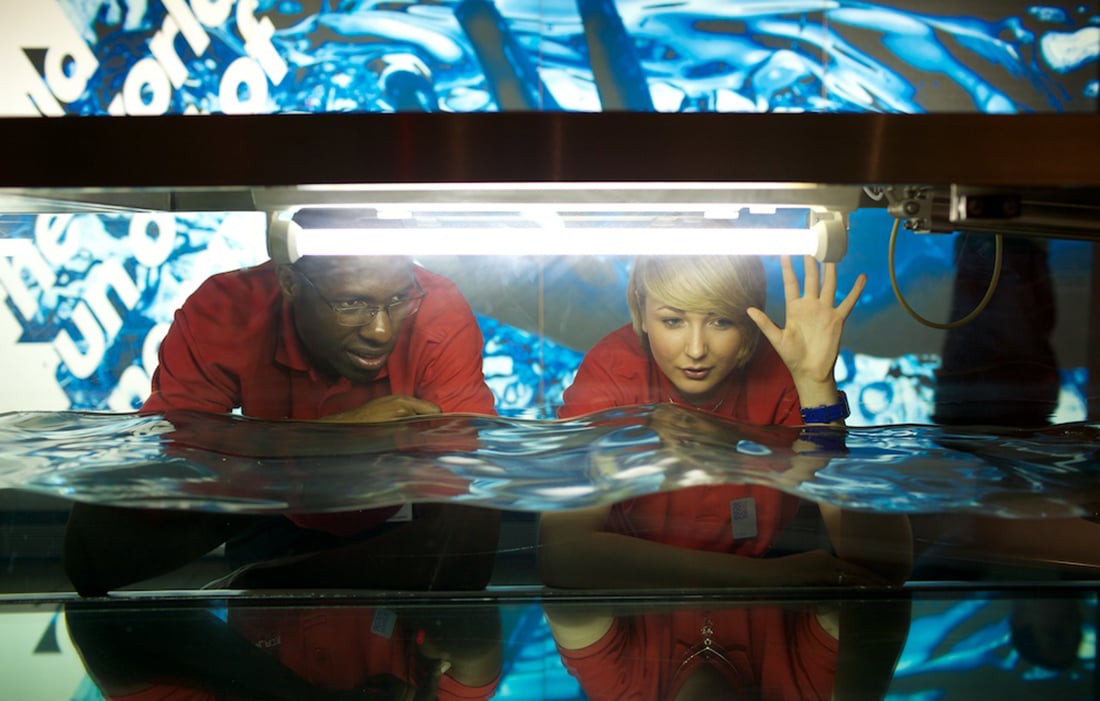
Photo: Briony Campbell
3 things you can do right now to show you mean ‘Black Lives Matter’
The massive surge in support for the Black Lives Matter movement has everyone busily writing diversity policies, but more important still are some fundamental changes that can be actioned right now, says Sara Whybrew.
The lack of diversity in the arts is not news. At Creative & Cultural Skills, we believe the cultural sector should have inclusivity at its heart, but the reality is that it doesn’t. We’ve spoken on this subject for many years and have seen little change. Last November, I wrote candidly about the importance of valuing and embracing difference. I also asked why we were still talking about diversity and inclusion rather than taking real action that means we change our ways. There’s been enough talking, now is the time for action.
Action, not words
Let’s begin with three things that absolutely everyone could do right now that would make a massive difference to diversity in the sector. The surge in support for the Black Lives Matter movement has everyone busily writing diversity policies and making pledges, but what is really needed are some fundamental changes that can be actioned. We appreciate our sector is under huge financial pressure and that, even with support packages in place, jobs will be lost. When organisations start to rebuild and recruit once again, we hope diversity and inclusion will be a priority, but I believe we can take some steps now to bring about positive change to our working world and wider society:
- Firstly, let’s stop creating unpaid jobs. We aren’t alone in campaigning for this, but we’re tired of some organisations thinking it’s okay to continue doing it just because they always have. These routes into the industry are elitist and, in many cases, contravene National Minimum Wage regulations. Only those who can work for free can pursue these routes. This perpetuates a lack of diversity in our sector and creates divisions around who realistically can and can’t get their foot in the door. Calling an unpaid job a ‘volunteering role’ doesn’t wash either – there are conditions that describe unpaid work and that describe true volunteering. They are different. We have guidance on this, so can help you make the distinction.
- We need to stop recruiting in our own image. Let’s stop being afraid of opening our doors to those who think, sound, and look different to us, who have different experiences and knowledge to draw on. Let’s learn from those who can teach us something new. We might even learn something about ourselves as a result.
- Finally, let’s think about the way we recruit and stop defaulting to pointless pre-requisites for entry. We need to start measuring potential when we recruit, not how many degrees someone has in an art-related subject, or their prior associations with recognised brands. Let’s learn to recognise and embrace someone’s potential to transfer skills, and their potential to learn once with us. I recently recruited someone who had been unsure about applying for a vacancy we had because they’d never worked in our sector before. It was clear throughout the recruitment process they had great breadth and depth of experience and I can’t wait to learn from them.
Equality – beyond representation
Please let’s start embracing difference and stop thinking that completing a diversity form is the same as tackling the issue. These forms might tell us about the representation of certain characteristics across our workforce – and representation is important – but they don’t tell us if we’re being truly open and treating everyone equally. It’s our working cultures that determine this. Let’s start now as we mean to go on.
As a person of mixed race, I don’t just want to feature somewhere in our workforce. I want to know that when I’m in it, I’ll be given equal opportunity to develop and progress. I believe the same is true of many marginalised and underrepresented people who have the ability to learn and contribute to us in brilliant and interesting ways.
Creative & Cultural Skills takes a knee and we will continue to do so until our sector opens its doors more widely and ensures that anyone with talent and potential are welcomed with open arms and given equal and fair treatment once they’re with us.
Sara Whybrew is Director, Policy and Development at Creative & Cultural Skills.
www.ccskills.org.uk
@CCSkills
This article, sponsored and contributed by Creative & Cultural Skills, is part of a series promoting apprenticeships and challenging entrenched social inequalities, to create a more diverse workforce.
Join the Discussion
You must be logged in to post a comment.